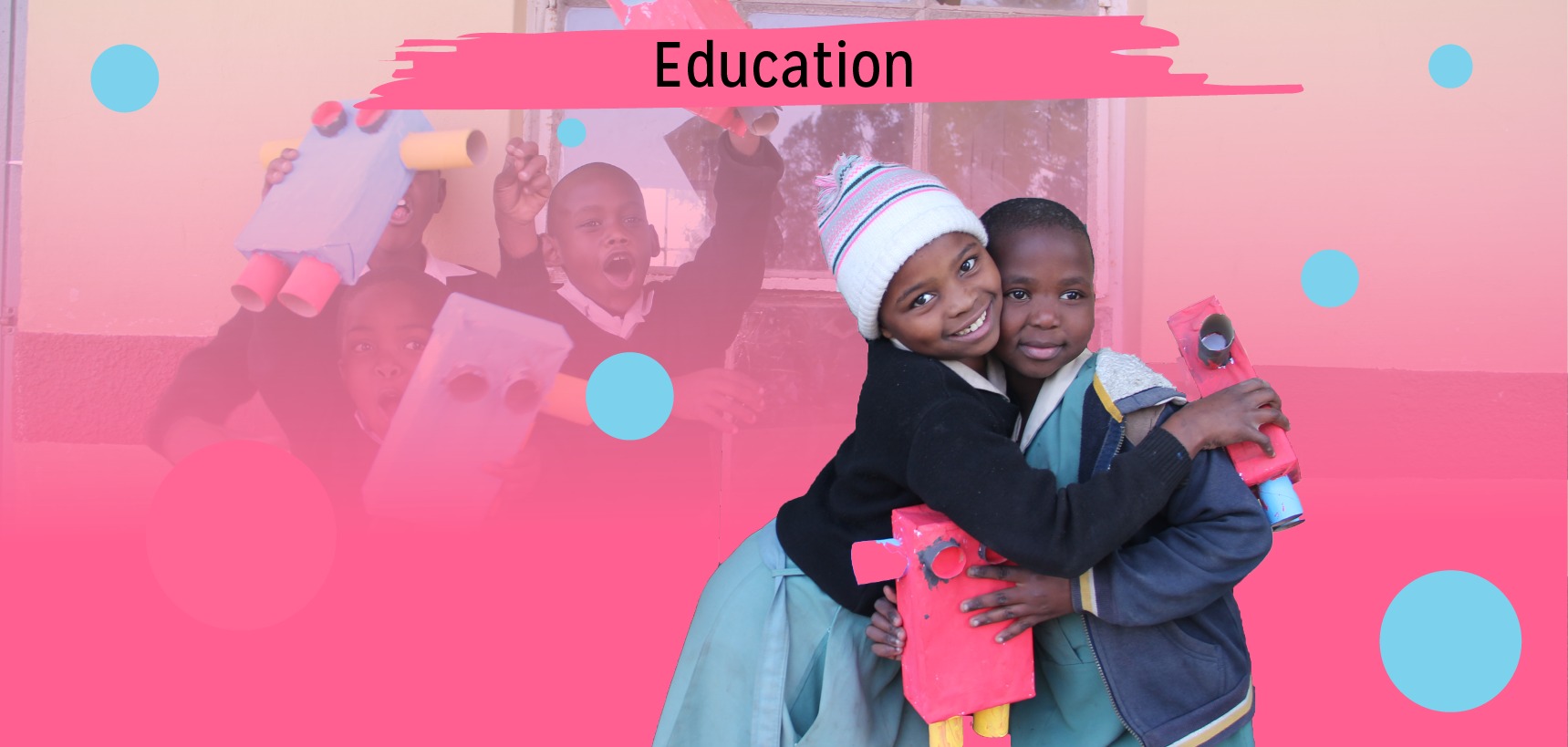


South Africa continually ranks last, or near last, in global surveys on quality of education. The school system continues to prioritise academics through rote learning, which leaves children without the skills they need to become fully contributing members of our society.
Our Education Initiative aims to develop Game-changing Skills that are vital to creating the next generation of resilient, confident young adults who understand interconnectedness, rebel against the norm when necessary, and contribute positively to their communities. We also work with guardians in each household to develop a learning environment at home, as well as neighbourhoods focused on empowerment and cooperation.

Key Programme Components

Resourceful Approach
After-school sessions are held every week day in classrooms at local schools – eliminating the need for children to find transportation to participate. And, rubbish and waste are used to create up-cycled toys to use in programme activities and lessons.
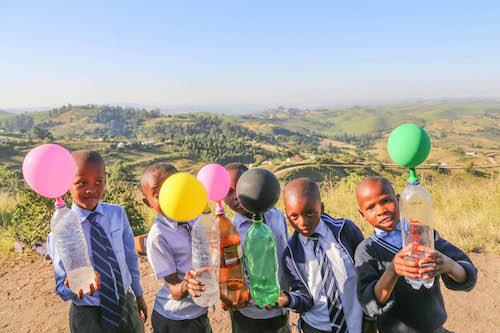
Hands-on Activities
By engaging with their environment and surroundings, children actively participate in the learning process. Hands-on activities enable children to learn by doing, which develops critical thinking and communication skills while engaging in real world problem-solving.
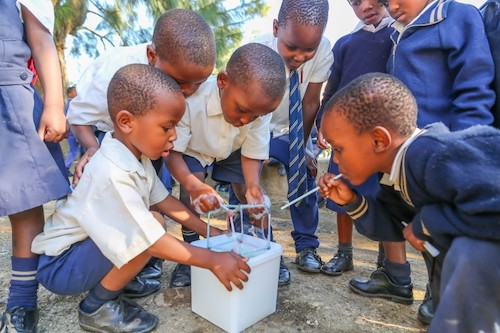
Theme-based Curricula
Projects & activities are developed around exciting themes, such as superheroes, artists, and musicians — creating fun learning experiences for children, while encouraging them to make lateral connections across subject areas.
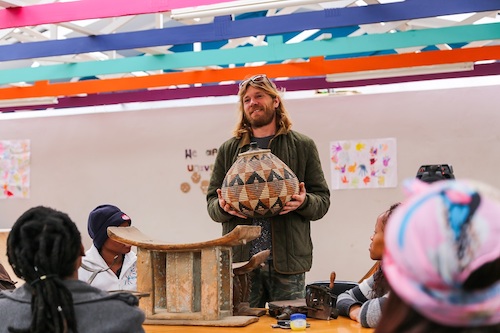
Dedicated Home Visiting Team
Our Home Visiting Team works with guardians to empower households to create close connections with children and enable a learning environment at home.
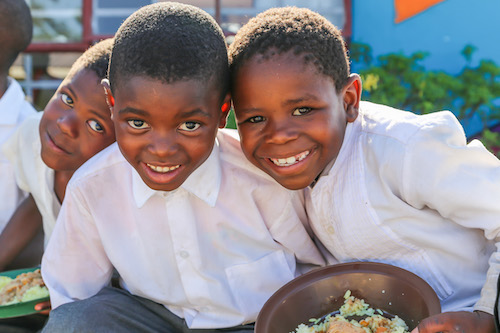
Feeding Scheme
All participants are provided a nutritious meal (protein, rice, and vegetables sourced from our organic farms) at every session to ensure that hunger does not eclipse learning and children can grow and play!
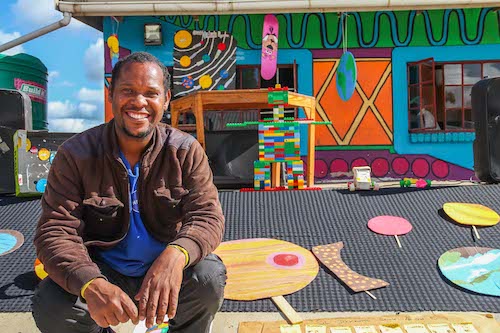
Community-based
Local youth are hired and trained as After-school Facilitators — creating opportunities for young people to develop their capacities and skills and providing role models for future generations.

A deeper look…

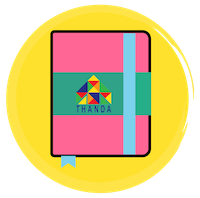
Our curriculum disrupts traditional educational models by moving away from rote memorization – encouraging curiosity & a level of rebelliousness. It aims to build academic skills (literacy, numeracy, and empirical thinking) as well as Game-changing Skills (Creativity, Empathy, Self-esteem, Critical thinking, and Perspective) that are necessary for developing resilient, lifelong learners who feel empowered to create a better world.
Our methodology is based on Ubuntu – the African idea that “I am what I am because we all are”. It focuses on collaborative projects where each child’s contribution comes together to create a better whole. And as a result, children start to see themselves as heroes, not victims. They start to realise that adversity is an opportunity to become a hero in their own story – to become someone who can create the changes they want to see in their own lives and in their communities.

Empathy is essential for a more peaceful world because it encourages people to look beyond race, nationality, or religion, and simply understand one another. In our curriculum, we define empathy as the ability to relate with other people, animals and nature and to use that understanding to guide one’s actions. By relating to a character in a story, children learn to see the points of view of others and are able to imagine themselves in someone else’s shoes. Empathy is a skill that can and should be practised every day. By caring for other living things, whether it be animals, insects, trees or other people, we learn that everything has needs and those needs may not always be the same as our own. We also have the ability, if not responsibility, to help others meet their needs, too. Even the most antagonistic character of a story is just as complex as the hero. The Lorax, for example, shows us that to completely understand the story we need to learn to empathise with its main character, the Onceler. Read more on our blog.

Self-esteem is vital for feeling comfortable and confident, while having the ability to celebrate the success of others and take risks. A person with healthy self-esteem believes that she is doing the best she can; she accepts that life isn’t always perfect and is able to adapt. Self-esteem enables a person to feel comfortable with herself and bounce back from challenges, which is a skill that extends well beyond the classroom. Our classrooms cultivate an atmosphere where differences are recognised and celebrated, reinforcing the idea that everyone contributes something unique. Through our curriculum, children and youth develop the ability to make healthy decisions and understand that respect and joint action are essential in creating a better world. Learn more about creating space for positive self-development in the classroom on our blog.
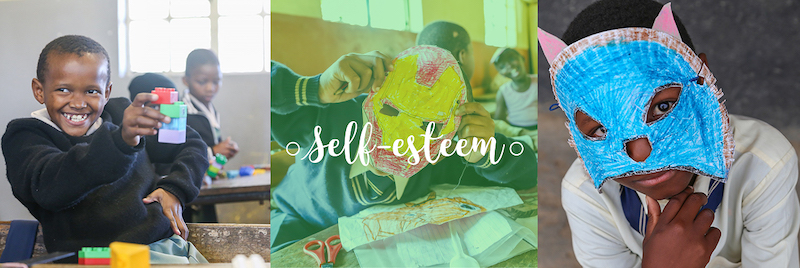
Teaching children perspective is important for developing resiliency because they begin to understand how perceptions vary from person to person. Perspective transforms the way people view their situations by encouraging them to see opportunities, rather than barriers, to success. In our curriculum, we use activities, movies, comics, and art as a lens for cross-cultural examination. Adopting different viewpoints can assist in critical thinking, develop better self-esteem, and lead to an all-around more creative being. It is easy to be concerned with ourselves, our needs, and our immediate community, but a personal and intentional connection to the world broadens our perspective and inspires us to create positive change. Ultimately, the goal of teaching perspective is to eliminate an “us” versus “them” mentality and sensitise children to differing perspectives. Thus, children feel more connected to the world-at-large. No matter our age, we all share a destiny and can all contribute to a better world. Read more about perspective on our blog.

Critical thinking is essential for one’s ability to develop opinions and stand up for one’s convictions. Through our curriculum, we explore controversial pieces of literature, poems, songs, and stories and discuss various moral and social dilemmas. Children learn to recognise and respect each other’s opinions, while forming their own opinions about what they believe to be right and wrong. Often, this leads us down a rabbit hole of infinite questions and possibilities — promote higher-level thinking, creativity, and abstract understanding. Our goal is that children and youth will develop the skills to independently analyze and synthesize information in order to better evaluate the world around them. Read more about critical thinking on our blog.

Creativity is critical to the development of so many other vital skills. In our after-school sessions, creativity flourishes and risk-taking is encouraged. By making mistakes, children learn from and improve upon their errors — developing grit and resilience. Art is seamlessly integrated into our curriculum and is often coupled with science projects, which expose children to the absolute bizarreness of our physical universe and emphasize the notion that new discoveries require big ideas and abstract thought. For example, children in our Grade 4&5 groups create aliens out of recycled materials and explained how they eat, breathe, and sleep. Through creative media, children learn to communicate their thoughts, experiences, and emotions, while broadening their perspectives. Read more about creativity on our blog.

+ Academic Foundations +
Science is an essential part of our curriculum, as it allows for hands-on learning opportunities, develops critical thinking and problem-solving skills, and helps children to understand the natural processes that surround them. While many of the local schools discuss scientific theory in their lessons, students are unable to test these theories due to a lack of proper instruction or equipment. In our after-school sessions or at our Science Lab (the only one in our community), children have an opportunity to experiment, ask questions, and test hypotheses. We believe that science is an essential part of the learning process, encourages children to develop intellectual curiosity, engage in logic-based reasoning, and build a keen interest in the world around them.
According to the 2015 TIMSS, South Africa ranked second from the bottom in Grade 8 Mathematics and last in Grade 8 Science mean test scores. Math is often scary and challenging for children and our experience over the years has highlighted the critical need to provide experiences that enable children to connect classroom learning to real-world applications. You won’t see students writing 2+2=4 in our after-school sessions. Instead, you’ll see us counting the rings of a tree, playing games with handmade dice, or building tangrams – we think this approach is much more effective at building strong foundations in math and it’s certainly more fun!
Literacy and reading are the backbone of our curriculum, which is centred around stories, song lyrics, and poems. Developing strong early literacy skills is fundamental to the rest of a person’s life, yet recent studies have shown that over 80% of Grade 4 children in South Africa are unable to read for meaning. Our after-school sessions prioritize this essential skill above all else because it links so directly to all other facets of learning, while building myriad skills that are essential for a person to develop empathy, have global perspective, and lead a happy and fulfilled life.



In addition to our After-school Programmes, our undeniably awesome After-school Facilitators started workshops to reach more children in surrounding schools. These workshops have enabled us to support an additional 13,500 students annually through:

Nutrition Puppet Shows
Whoonga Awareness
Life Skills for High Schoolers
Health Dramas


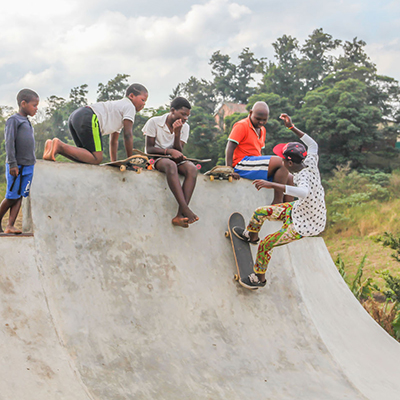
Qiniso has been in our After-school Programmes for nine years and is now in our high school After-school Programme. When speaking of his hopes for the future he says, “I would like to work with Thanda to change my community, for those who are on drugs to stop and live a happy life.” He is also an incredible skater… here is his story.
Our skateboarding programme started in 2014, with the construction of a skate park at the heart of our Community Centre, which is open to the public 365 days a year.
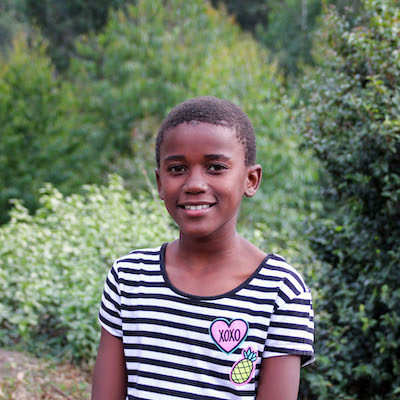
Nokwanda’s self-esteem has increased substantially during her time at Thanda. Initially she was very shy and when asked a question she would cover her mouth or look away. After encouragement and support from her facilitators and learning stories of confidence from children’s literature her self-esteem slowly increased. Now her facilitator reports that Nokwanda has no problem, even with tasks such as presenting in front of the entire class!
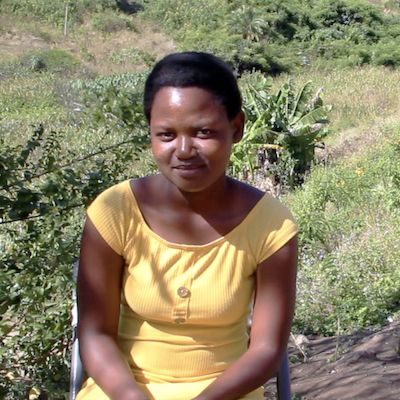
When Mandisa began her grade 6 years in 2019 her facilitator, Nomzamo, noticed that she had learning difficulties. Nomzamo spent extra time with Mandisa on the activities she struggled with.
Slowly, her reading and writing improved and her confidence soared along with it. Mandisa’s development was remarkable and by the end of the year, she was constructing simple paragraphs and was able to stand in front of the class and tell stories of her holiday and family.
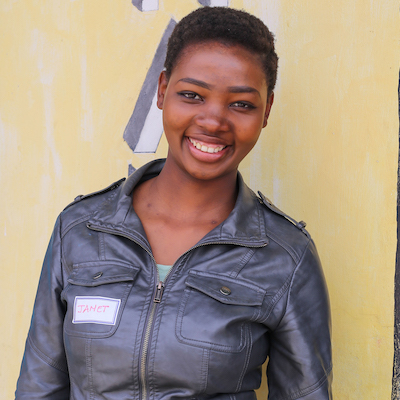
A likely hero in our community, Janet admires our co-founder and director, Angela Larkan. Why? Because Angela provided an opportunity for her to realise her talents and passions through participating, volunteering, and then working as an After-school Facilitator at Thanda. When Janet began working, she also became the primary breadwinner for her family (her gran and two siblings). Ten years later, she is pursuing a degree in teaching and still supporting her entire family, although she does get to travel, too!

In 2019, children increased by…
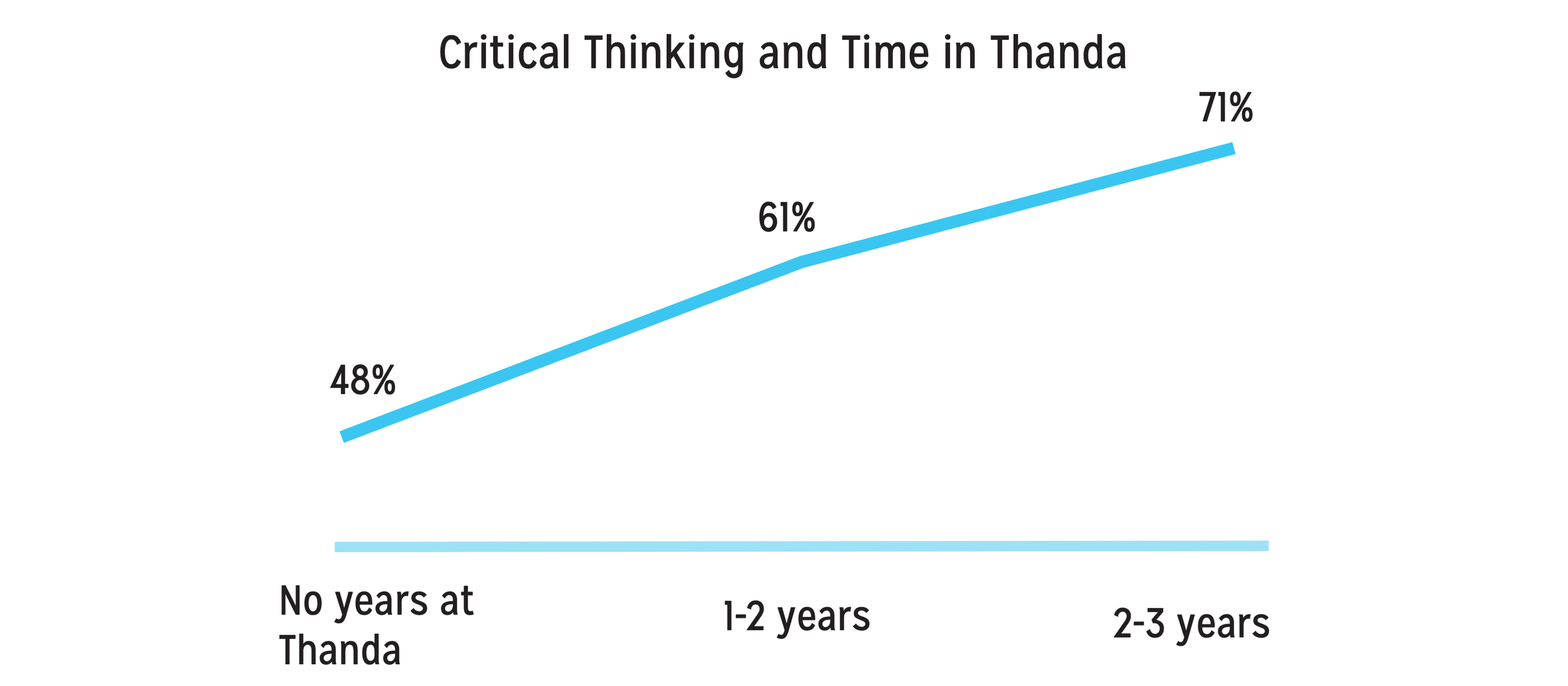
“My hero is Captain America because he can use his shield to protect people. I see myself as a hero to my friend Khanyisile because I protect him when other kids want to bully him.”
– Mnqobi, After-school Participant


